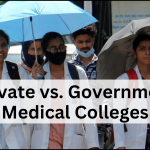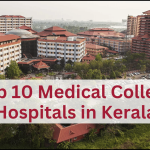
Medical education, a costly journey, demands financial support. Scholarships, a great aid, ease the burden for students. Various organizations, both government and private, offer financial assistance based on merit, need, or specific qualifications. A guide, structured below, explains how to secure these scholarships.
Types of Scholarships for Medical Students
Different scholarships, categorized based on eligibility and funding sources, benefit students in multiple ways.
1. Merit-Based Scholarships
- High academic achievers, the primary recipients, benefit from these awards.
- Strong GPA, excellent test scores, and leadership qualities, key selection factors, play a crucial role.
- Extracurricular involvement, an added advantage, increases eligibility chances.
2. Need-Based Scholarships
- Financially struggling students, the main beneficiaries, rely on these scholarships.
- Income proof, tax returns, and financial documents, essential requirements, determine eligibility.
- Universities, government agencies, and non-profits, common providers, allocate these funds.
3. Government-Funded Scholarships
- National or state governments, primary sponsors, offer these scholarships.
- Tuition, books, and living expenses, covered expenses, reduce financial stress.
- Service obligations in underserved areas, a common requirement, accompany many of these awards.
4. Private and Corporate Scholarships
- Businesses, private foundations, and organizations, funding sources, support these scholarships.
- Specific medical fields, such as oncology or pediatrics, targeted recipients benefit the most.
- Fewer applicants, a notable advantage, increase selection chances.
5. Minority and Special Category Scholarships
- Students from particular ethnic, cultural, or socio-economic backgrounds, intended beneficiaries, receive these awards.
- Women, disabled students, and first-generation medical students, key groups, find these scholarships valuable.
- Diversity in the medical profession, a major goal, drives the existence of such scholarships.
6. Research-Based Scholarships
- Medical research, a core criterion, determines eligibility.
- Universities, research institutes, and pharmaceutical companies, common sponsors, offer these grants.
- Research proposals, essential application components, accompany most submissions.
Ways to Find Medical Scholarships
1. University Websites
- Medical colleges, scholarship providers, list available financial aid options.
- Application deadlines and eligibility criteria, crucial details, appear on their portals.
2. Government Portals
- Education ministries and government agencies, primary sources, publish scholarship opportunities.
- National Health Service (NHS) and Federal Student Aid (FAFSA), notable examples, assist students financially.
3. Private Organizations and Foundations
- Non-profits and medical associations, major contributors, provide numerous scholarships.
- American Medical Association (AMA) Foundation and Indian Medical Association (IMA), popular sources, fund many students.
4. Online Scholarship Databases
- Websites like Scholarships.com and Fastweb, efficient search tools, list various funding options.
- Filters, useful features, help students find scholarships matching their profile.
5. Hospitals and Medical Institutions
- Healthcare centers, potential sponsors, fund students in exchange for service commitments.
- Medical specialization, a key factor, influences scholarship availability.
Application Process for Scholarships
Step 1: Research and Identify Scholarships
- Suitable scholarships, an important aspect, must align with academic and financial needs.
- Deadlines and requirements, crucial elements, should be carefully noted.
Step 2: Check Eligibility
- Eligibility criteria, essential information must be read thoroughly.
- Academic, financial, or demographic qualifications, determining factors, need verification.
Step 3: Gather Necessary Documents
- Commonly required documents, important for application success, include:
- Academic transcripts
- Financial proof (if applicable)
- Letters of recommendation
- Personal statement or essay
- Resume or CV
- Research proposals (for research-based scholarships)
Step 4: Write a Strong Personal Statement
- Personal motivation, achievements, and career aspirations, key topics, should be included.
- Clear, concise, and error-free writing, an important factor, enhances chances of selection.
Step 5: Obtain Strong Letters of Recommendation
- Professors, mentors, and medical professionals, the best sources, should be approached for recommendations.
- Sufficient time, a necessary consideration, must be given for well-crafted letters.
Step 6: Apply Before the Deadline
- Documents, carefully reviewed, must be submitted correctly.
- Early submission, a good practice, prevents last-minute issues.
Step 7: Prepare for Interviews (If Required)
- Interviews, sometimes mandatory, assess students on their academic achievements and goals.
- Preparation, including practice responses, improves performance.
Tips to Enhance Scholarship Success
| Tip | Description |
|---|---|
| Multiple Applications | A strong GPA, a major criterion, improves competitiveness. |
| High Academic Performance | Strong GPA, a major criterion, improves competitiveness. |
| Extracurricular Activities | Leadership roles, volunteer work, and research, valuable additions, strengthen applications. |
| Unique and Compelling Essay | Well-written personal statements, distinguishing factors, set applications apart. |
| Proper Documentation | Required documents, correctly submitted, prevent disqualification. |
| Mentor Guidance | Professors and advisors, experienced sources, provide valuable insights and support. |
Summing Up
Medical scholarships, financial lifelines, reduce the burden of expensive education. Research, preparation, and timely applications, essential steps, improve chances of success. Early planning, strong academic records, and well-crafted applications, critical factors, ensure financial aid. Maximum scholarship applications, a wise approach, increase opportunities for securing funding.








